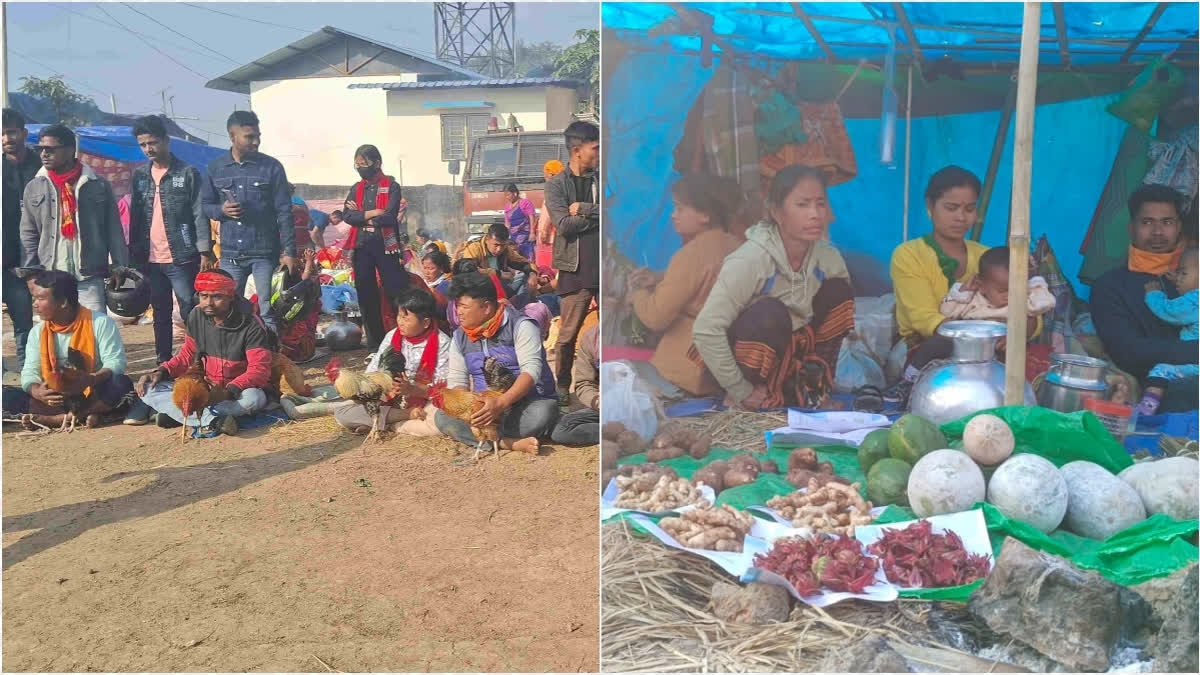Jonbeel (Morigaon): The Jonbeel area, otherwise a sleepy hamlet in Assam's Morigaon district, came alive bustling with activities on Friday. One can see small stalls erected with the help of bamboo and shades of colourful tarpaulin hanging around them. The activity started as early as 5 am and the rush was seen growing with time. Like any other rural fair, people were seen engaging in different trade activities. However, what sets the trade activities unique is the lack of currency. Here it is not the currency that sets the trade in motion but they are exchanged in barter, just as those were done about 500 years ago.
"Welcome to the annual Jonbeel Mela, a traditional fair dating back to the 15th century that has kept the barter system alive. 'Jon' in Assamese means 'moon' and 'beel' means 'wetland.' History has it that the fair gets its name from Jonbeel, as it was once held on the banks of a wetland shaped like a crescent moon."
First organised during the reign of Ahom King Rudra Singha, the Jonbeel Mela was an annual gathering between the Ahom Kings and tribal chieftains to discuss the political landscape of the region. History tells us that both the Ahom Kings and the tribal chieftains brought their subjects to the fair to promote brotherhood and harmony among the people living in the plains and the neighbouring hills. While coins existed at the time, the barter system was preferred as a way to strengthen the bond between the communities of the plains and those in the hills."
"We come here every year. We are from the hills and brought here homegrown ginger, black pepper and turmeric. We have bartered our stuff with pitha (rice cakes) and laru (traditional sweet meat). This has been a tradition for us. Our ancestors as well as the kings promoted this and we are still following this," said a person, who came from the neighbouring hills. He bought pithas, larus and dry fish bartering his spices, including ginger, turmeric and black pepper, which grows in the hills in abundance.
